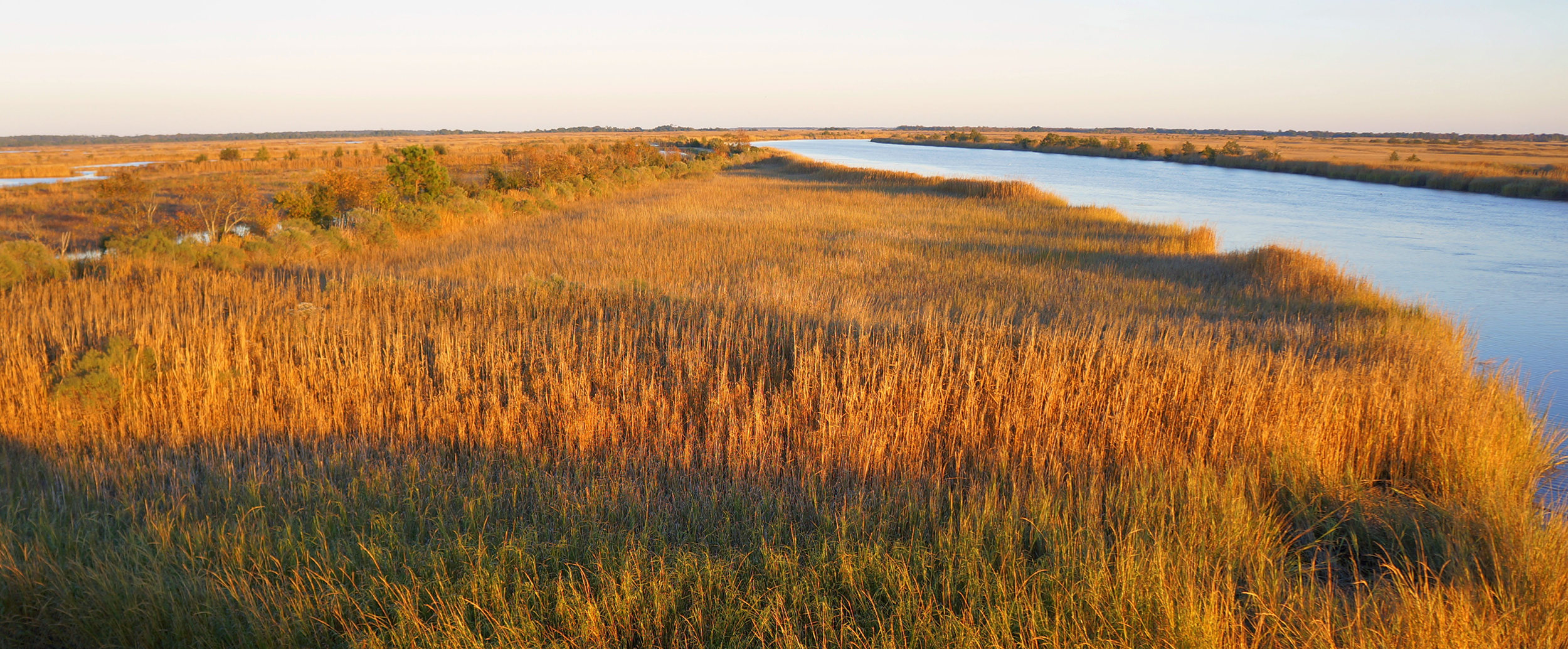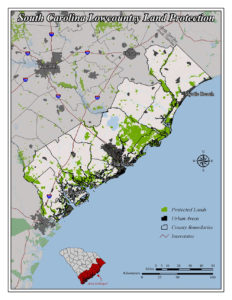


 We offer a suite of philanthropic resources to support the stewardship of both natural and working lands with increased focus through the lenses of climate resiliency, inclusion, and advocacy. Guided by current resiliency research, input from our grantees (including the Lowcountry Land Conservation Partnership), and our Expanding Conservation Toolbox Report, the strategy leverages the Foundation’s resources to produce strategic results in land conservation through landscape-scale protection opportunities, advance equity in communities of color across the region, and amplifying advocacy work to improve policies and increase public funding.
We offer a suite of philanthropic resources to support the stewardship of both natural and working lands with increased focus through the lenses of climate resiliency, inclusion, and advocacy. Guided by current resiliency research, input from our grantees (including the Lowcountry Land Conservation Partnership), and our Expanding Conservation Toolbox Report, the strategy leverages the Foundation’s resources to produce strategic results in land conservation through landscape-scale protection opportunities, advance equity in communities of color across the region, and amplifying advocacy work to improve policies and increase public funding.
The Foundation provides grants to non-profit organizations for general operations and projects and directly engages in policy advocacy and communications to support the work of land conservation related organizations in the lower coastal plain with an emphasis on eleven counties – Charleston, Beaufort, Berkeley, Colleton, Dorchester, Georgetown, Hampton, Horry, Jasper, Marion, and Williamsburg. We also host the biennial Lowcountry Land Conservation Symposium.
With the impacts of climate change in the region, including sea level rise, warmer temperatures, and extreme weather, focus on resilient climate corridors is a priority, imperative to not only coastal lands, but to also inland where habitats will migrate as impacts continue. We support land conservation organizations that demonstrate strategic protection with a resiliency lens as part of their program work, including mapping and research that identifies resiliency priorities; organizations working in vulnerable communities to address climate impacts using land conservation strategies; and advocacy organizations working at the federal, state, and local levels to increase public awareness and funding for mitigation and adaptation in the Lowcountry.
The land conservation field, and the broader environmental field, has been reckoning with the benefits and impacts of the traditional approaches to conservation on BIPOC and low-wealth communities. The Lowcountry is no exception. The Foundation has already taken important steps to address these disparities and foster a more equitable field: providing diversity, equity and inclusion training for Foundation board, staff and grantees; participating in working groups and research that uncovers the history of conservation to prevent the perpetuation of systemic racism in the field; and supporting the creation of professional development affinity groups for BIPOC staff members in the region. We will continue these efforts, as well as provide philanthropic support to Black, Indigenous, Latino and other organizations of color addressing land conservation-related issues through general operations and project grants; continue to support White-led land conservation organizations which demonstrate a commitment to and activation of equity policies in their administration and programmatic work; and fund projects and initiatives centered around opportunities where traditional conservation organizations and BIPOC communities work collaboratively to address community priorities that intersect with land conservation.
Some land conservation outcomes happen with easements or fee simple transactions. Some with teams of volunteer stewards. Some occurs at the policy level. There are opportunities to advocate for the application of current and the development of future public programs at the state and local level to support conservation-focused regional planning, working lands, habitat connectivity, floodwater storage, and other resiliency-related efforts. We provide resources to help augment the land conservation field’s efforts to weave a cohesive narrative around the benefits of conservation and influence public policy on land use and resiliency, including general operating and project support to conservation advocacy efforts.
Organizations that apply for grants or PRI support would need to meet the following eligibility requirements:
The Gaylord and Dorothy Donnelley Foundation has two grant cycles each year. Our 2024 proposal deadlines are Friday, March 29 (Spring Cycle) and Friday, July 26 (Fall Cycle).
First-time prospective applicants or groups that haven’t received a conservation grant in the last three years must contact Jason Crowley, our Lowcountry Program Director at jason@gddf.org with as much notice as possible before applying. For some prospective applicants, additional time or considerations may be warranted, and a future proposal deadline may be more appropriate.
Current grantees, you will hear from us in advance of your final report date to discuss renewal options or updated projects.
If you would like to return to an existing application please use the link below to log in to your Grantee Portal Account: